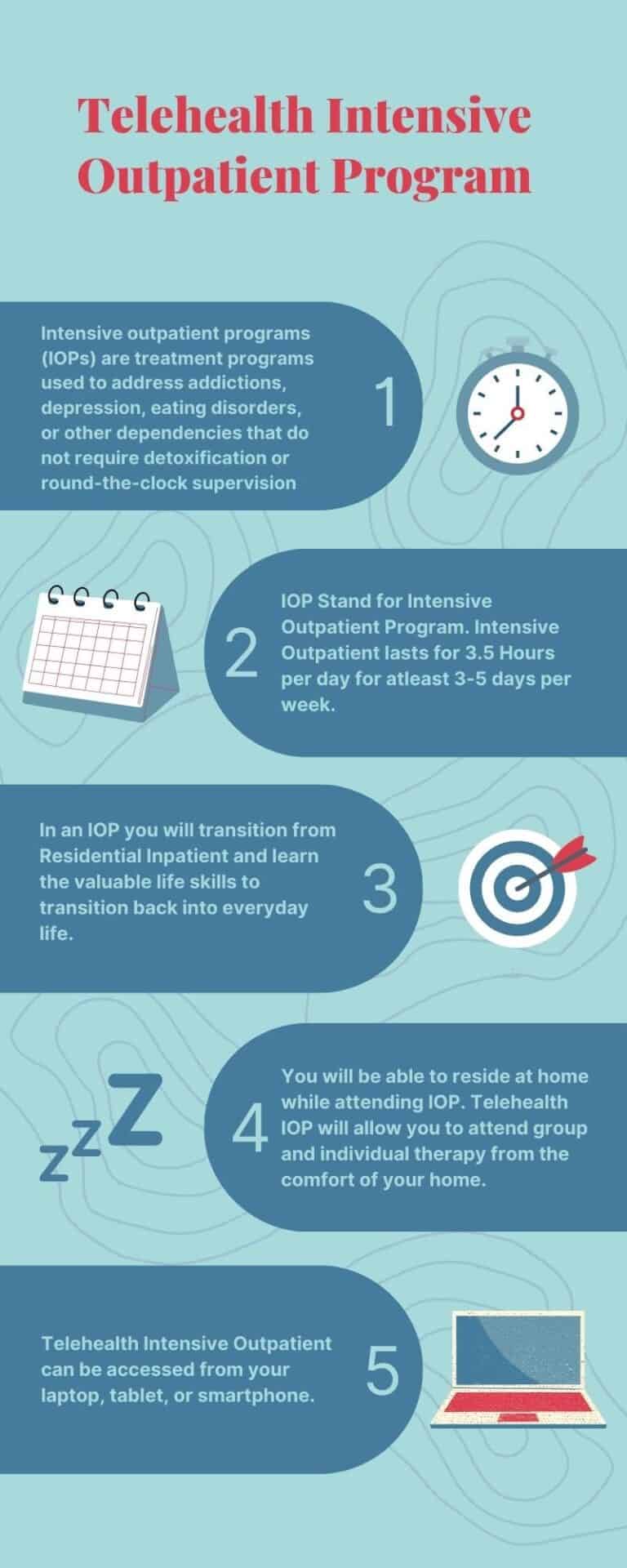Proven Success with Intensive Outpatient Program (IOP) for Chemical Abuse Healing.
Proven Success with Intensive Outpatient Program (IOP) for Chemical Abuse Healing.
Blog Article
Navigating the Intricacies of Double Diagnosis Treatment Within an Extensive Outpatient Program Setting
In the world of psychological health and addiction therapy, the crossway of dual medical diagnosis presents a nuanced difficulty that demands a thorough and tailored technique. By discovering the ins and outs of dual medical diagnosis treatment within this extensive outpatient context, a clearer course emerges towards holistic and lasting healing for those grappling with these linked obstacles.
Dual Medical Diagnosis Review
What is the relevance of understanding double diagnosis in psychological health and wellness treatment? Dual diagnosis describes the co-occurrence of a substance usage disorder and a psychological wellness problem in a person. It is critical to recognize and address this comorbidity as it can significantly affect the performance of psychological wellness treatment. Without correct identification and administration of both conditions, people may have a hard time to attain lasting recovery and stability.
Recognizing twin diagnosis is vital as it needs a detailed and integrated strategy to therapy. By acknowledging the interaction in between material usage and psychological health and wellness, medical care suppliers can tailor treatments to meet the one-of-a-kind requirements of each person. This all natural approach not just addresses signs and symptoms but likewise targets hidden variables that add to the dual diagnosis.
In addition, without treatment double medical diagnosis can result in a cycle of relapse and aggravating psychological wellness symptoms. By recognizing the intricacy of double medical diagnosis and giving specialized care, medical care specialists can sustain people in achieving long-term recuperation and boosted mental well-being.
Tailored Treatment Strategies
Acknowledging the complex interaction between substance use conditions and psychological wellness conditions, the development of tailored therapy plans is paramount in addressing the intricacies of double medical diagnosis in mental health and wellness therapy. Tailored therapy plans are individualized techniques that consider the one-of-a-kind demands, obstacles, and objectives of people dealing with double medical diagnosis. These plans are made collaboratively by a multidisciplinary group of professionals, consisting of psychiatrists, psycho therapists, social employees, and dependency experts, to guarantee detailed and integrated care.
Tailored treatment plans usually entail a mix of therapies, drugs, and behavioral treatments that target both the compound use condition and the mental health condition concurrently. These strategies might include cognitive-behavioral treatment, dialectical actions therapy, medication-assisted therapy, individual therapy, group therapy, and household therapy, to name a few evidence-based interventions. By personalizing treatment approaches to individual scenarios, tailored plans can resolve the origin causes of double diagnosis, promote long-term recovery, and boost total lifestyle for people fighting with co-occurring disorders.
Integrated Treatment Method

Additionally, the social facet of incorporated treatment entails dealing with environmental elements that might contribute to the growth or perpetuation of compound usage and mental health problems. This can consist of family characteristics, real estate instability, or lack of social support. By including social treatments like family treatment, trade support, and neighborhood resources, the therapy becomes much more all natural and tailored to the person's certain needs. Overall, an integrated care strategy in twin diagnosis therapy within an extensive outpatient program setup intends to provide extensive, efficient, and individualized care to people encountering co-occurring conditions.
Obstacles in IOP Establishing
In the context of dual diagnosis treatment within an intensive outpatient program, navigating the complexities of co-occurring material use disorders and mental health problems presents considerable difficulties. Among the primary obstacles in the IOP setup is the coordination of care in between mental wellness specialists and drug abuse professionals to make sure an extensive therapy approach. This requires reliable communication, collaboration, and a deep understanding of just how these conditions connect and influence each various other.
Moreover, the rising and falling nature of material usage conditions and mental wellness conditions adds another layer of intricacy - Intensive Outpatient Program (IOP). Customers in an IOP might experience unexpected shifts in their signs and symptoms or material yearnings, requiring timely treatment and adjustment of therapy techniques. Balancing the intensity of treatment and assistance while permitting clients the adaptability to manage their day-to-day obligations can be a delicate equilibrium to preserve
In addition, dealing with preconception and resistance to treatment within the IOP visit this site setting can hamper development. Some individuals may be reluctant to reveal their dual diagnosis or may feel ashamed, impeding their interaction in the healing procedure. Getting over these barriers necessitates an encouraging and non-judgmental environment that fosters trust and openness.

Collaborative Professional Efforts

Joint initiatives likewise extend to normal interaction and details sharing amongst staff member to make certain a natural therapy technique - Intensive Outpatient Program (IOP). This may entail instance seminars, joint sessions with the patient, or shared documents to track progression and readjust treatment techniques as needed. Furthermore, collaboration might consist of entailing various other medical care experts such as health care medical professionals or household therapists to give holistic support to the patient. Eventually, a united front of professionals interacting boosts the performance of double medical diagnosis treatment within an extensive outpatient program.
Conclusion
In conclusion, efficient dual medical diagnosis treatment within an extensive outpatient program setup needs tailored site treatment strategies and an integrated care technique. Difficulties might emerge in this setup, however collective efforts amongst professionals can aid navigate these complexities. By addressing the distinct requirements of individuals with co-occurring mental health and substance use conditions, IOP programs can supply comprehensive and alternative care to sustain recovery and general wellness.
Report this page